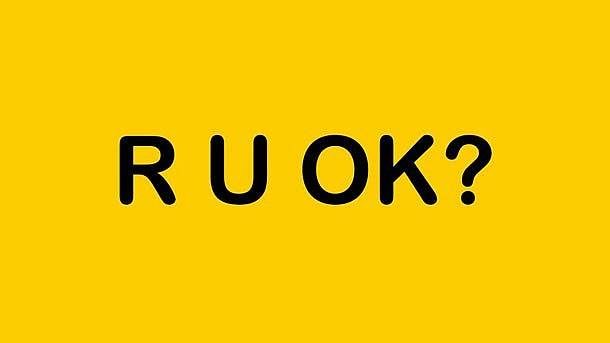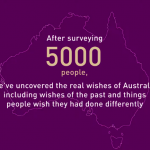R U OK at work?

Thursday 13 September was R U OK? Day, highlighting a national campaign that raises awareness for mental health and suicide prevention among Australians.
The silence around mental health in the workplace would indicate to many that all is well. However, when studies have shown that 45% of Australians currently aged between 16 to 85 will experience a mental health condition in their lifetime, and a third of these cases will be related to pressures experienced at work, it’s high time to start talking.
Factors that contribute to deteriorating mental health can range from relationships and family at home to stress, deadlines, leadership duties and anxiety to meet targets in the office. Given that we spend a third of our lives at work, there’s little wonder that it is the source of significant stress and anxiety. As such, it’s only becoming more and more important to normalise conversations with colleagues about what is going on in our lives and in our heads.
While the workplace has been attributed as a contributor to many of these pressures, it can also be an incredibly important source of support.
By being around the same people day in and day out, you begin to form friendships and recognise when your colleagues may be having an off day. However, when off days turn into off weeks and months, it’s time to ask – R U OK?
Many organisations foster supportive environments that pre-empt these problems and implement avenues to address them as they arise. This comes with sound leadership and a commitment to supporting a healthy work-life balance.
91% of Australian employees consider a mentally healthy working environment as essential for overall wellbeing, however, only 52% of these respondents designated their workplace as meeting the criteria of such a workplace.
These statistics beg attention from Australian company leaders to create a supportive working environment, requiring a culture shift that is benefitted by a positive change from above. Perhaps the most important thing that employers can do is to normalise discussions about mental health. Only five in ten Australian employees believe that their most senior leader values mental health. The change starts here.
The challenge for leaders is to raise the profile of awareness of mental health among your employees and bring it in to everyday work practices. People who will often happily talk openly about the physical and organisational aspects of their work will hesitate when discussion turns to depression, anxiety, stress and pressure. The societal tendency to treat mental health as taboo requires a systemic change from all levels of leadership, starting with you.
That’s where R U OK Day comes in. The day is an annual reminder of how important it is to ask, and ways of going about it. Talking about our emotions can be a struggle at the best of times, so by following the simple steps of ask, listen, encourage action and check in can help us over hurdles by sparking a conversation that could mean more to a colleague than you know.
More information on talking about mental health can be found at ruokay.org.au
To learn more about how mental health coincides with leadership, engagement and balance, head to melindafellconsulting.com.au
Melinda Fell is the Director of Melinda Fell Consulting. Her company offers boutique executive search, selection and coaching for both employees and employers in the financial services sector.








